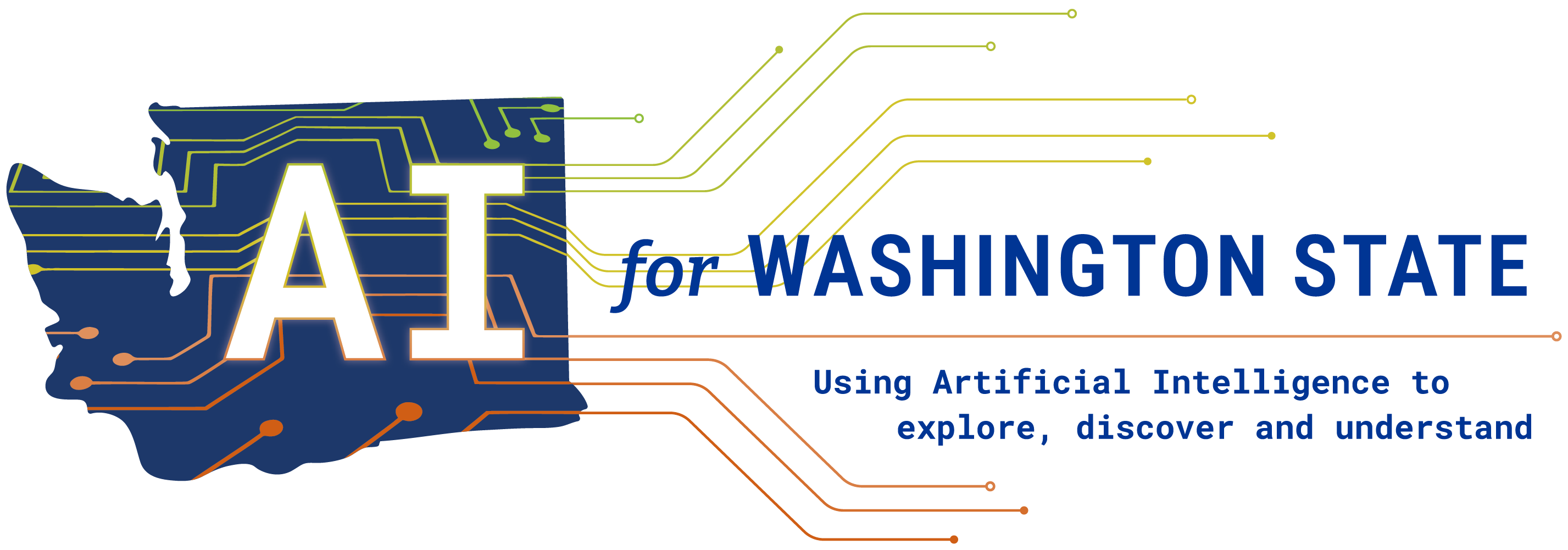 Magdalena Balazinska is Professor, Bill & Melinda Gates Chair, and Director of the Paul G. Allen School of Computer Science & Engineering at the University of Washington. Magdalena’s research interests are in the field of database management systems. Her current research focuses on data management for data science, big data systems, cloud computing, and image and video analytics. Prior to her leadership of the Allen School, Magdalena was the Director of the eScience Institute, the Associate Vice Provost for Data Science, and the Director of the Advanced Data Science PhD Option. She also served as Co-Editor-in-Chief for Volume 13 of the Proceedings of the Very Large Data Bases Endowment (PVLDB) journal and as PC co-chair for the corresponding, prestigious VLDB’20 conference. Magdalena is an ACM Fellow. She holds a Ph.D. from the Massachusetts Institute of Technology (2006). Shortly after her arrival at the University of Washington, she was named a Microsoft Research New Faculty Fellow (2007). Magdalena received the inaugural VLDB Women in Database Research Award (2016) for her work on scalable distributed data systems. She also received an ACM SIGMOD Test-of-Time Award (2017) for her work on fault-tolerant distributed stream processing and a 10-year most influential paper award (2010) from her earlier work on reengineering software clones. Magdalena received an NSF CAREER Award (2009), the UW CSE ACM Teaching Award (2013), the Jean Loup Baer Career Development Professorship in Computer Science and Engineering (2014-2017), two Google Research Awards (2011 and 2018), an HP Labs Research Innovation Award (2009 and 2010), a Rogel Faculty Support Award (2006), a Microsoft Research Graduate Fellowship (2003-2005), and multiple best-paper (and “best of”) awards.
Magdalena Balazinska is Professor, Bill & Melinda Gates Chair, and Director of the Paul G. Allen School of Computer Science & Engineering at the University of Washington. Magdalena’s research interests are in the field of database management systems. Her current research focuses on data management for data science, big data systems, cloud computing, and image and video analytics. Prior to her leadership of the Allen School, Magdalena was the Director of the eScience Institute, the Associate Vice Provost for Data Science, and the Director of the Advanced Data Science PhD Option. She also served as Co-Editor-in-Chief for Volume 13 of the Proceedings of the Very Large Data Bases Endowment (PVLDB) journal and as PC co-chair for the corresponding, prestigious VLDB’20 conference. Magdalena is an ACM Fellow. She holds a Ph.D. from the Massachusetts Institute of Technology (2006). Shortly after her arrival at the University of Washington, she was named a Microsoft Research New Faculty Fellow (2007). Magdalena received the inaugural VLDB Women in Database Research Award (2016) for her work on scalable distributed data systems. She also received an ACM SIGMOD Test-of-Time Award (2017) for her work on fault-tolerant distributed stream processing and a 10-year most influential paper award (2010) from her earlier work on reengineering software clones. Magdalena received an NSF CAREER Award (2009), the UW CSE ACM Teaching Award (2013), the Jean Loup Baer Career Development Professorship in Computer Science and Engineering (2014-2017), two Google Research Awards (2011 and 2018), an HP Labs Research Innovation Award (2009 and 2010), a Rogel Faculty Support Award (2006), a Microsoft Research Graduate Fellowship (2003-2005), and multiple best-paper (and “best of”) awards.
Ranveer Chandra, Managing Director of Research for Industry & head of Networking Research, Microsoft
 Ranveer Chandra is the CTO of Agri-Food, Managing Director of Research for Industry, and head of Networking Research at Microsoft Research in Redmond. He previously served as the Chief Scientist of Microsoft Azure Global. Ranveer’s research has shipped in multiple Microsoft products, including XBOX, Azure, and Windows. Ranveer is the inventor of Microsoft FarmBeats – Big Data, AI, Cloud & Edge for Agriculture, which is a Microsoft product, and is being used by multiple agri-food companies. FarmBeats was featured by Bill Gates on GatesNotes, and he has been invited to present to the Secretary of Agriculture, and on TV White Spaces to the FCC Chairman. Ranveer has published over 90 peer-reviewed research papers and has over 100 patents granted by the USPTO. He is an IEEE Fellow, and has won several awards, including best paper awards in computer science conferences and the MIT Technology Review’s Top Innovators Under 35 award in 2010. Ranveer has an undergraduate degree from IIT Kharagpur, India, and a Ph.D. in Computer Science from Cornell University.
Ranveer Chandra is the CTO of Agri-Food, Managing Director of Research for Industry, and head of Networking Research at Microsoft Research in Redmond. He previously served as the Chief Scientist of Microsoft Azure Global. Ranveer’s research has shipped in multiple Microsoft products, including XBOX, Azure, and Windows. Ranveer is the inventor of Microsoft FarmBeats – Big Data, AI, Cloud & Edge for Agriculture, which is a Microsoft product, and is being used by multiple agri-food companies. FarmBeats was featured by Bill Gates on GatesNotes, and he has been invited to present to the Secretary of Agriculture, and on TV White Spaces to the FCC Chairman. Ranveer has published over 90 peer-reviewed research papers and has over 100 patents granted by the USPTO. He is an IEEE Fellow, and has won several awards, including best paper awards in computer science conferences and the MIT Technology Review’s Top Innovators Under 35 award in 2010. Ranveer has an undergraduate degree from IIT Kharagpur, India, and a Ph.D. in Computer Science from Cornell University.
André Coleman, Chief Scientist, Geospatial Science, Analytics, and Geointelligence Lead, Pacific Northwest National Laboratory
 Dr. André Coleman is a data scientist at the Pacific Northwest National Laboratory (PNNL). Coleman joined PNNL in 2000 and brings 30 years of experience in the fields of geoinformatics, hazard informatics, geointelligence, hydrology, sustainable energy, data science, and computer science. His specific research interests are in spatial and numerical modeling, systems optimization, remote-sensing analytics, rapid disaster assessments, machine/deep learning, GeoAI, water security, coupling of spatial and physics-based numerical models, and automated and scalable cloud-compute pipelines.
Dr. André Coleman is a data scientist at the Pacific Northwest National Laboratory (PNNL). Coleman joined PNNL in 2000 and brings 30 years of experience in the fields of geoinformatics, hazard informatics, geointelligence, hydrology, sustainable energy, data science, and computer science. His specific research interests are in spatial and numerical modeling, systems optimization, remote-sensing analytics, rapid disaster assessments, machine/deep learning, GeoAI, water security, coupling of spatial and physics-based numerical models, and automated and scalable cloud-compute pipelines.
André received a BS in Geography and Earth Resources from Utah State University (Geographic Information Science, hydrology, and fluvial geomorphology), an MS (cum laude) in Geoinformatics at the Vrije Universiteit, The Netherlands (bridging machine learning and complex spatial data), and a PhD in Geography from the University of Utah (rapid heterogeneous data fusion for situational awareness in disaster management and geointelligence). To date, Dr. Coleman has authored or co-authored over 120 peer-reviewed publications.
 Dale Durran’s research spans several areas in atmospheric science including predictability, sub-seasonal forecasting using machine learning, mountain meteorology, atmospheric waves, and numerical methods for the simulation of atmospheric flows. Most recently he has been exploring how deep learning can change our current paradigm for numerical weather prediction. He is a fellow of the American Meteorological Society and has written numerous scientific publications, a textbook and “perspective” articles for the Washington Post.
Dale Durran’s research spans several areas in atmospheric science including predictability, sub-seasonal forecasting using machine learning, mountain meteorology, atmospheric waves, and numerical methods for the simulation of atmospheric flows. Most recently he has been exploring how deep learning can change our current paradigm for numerical weather prediction. He is a fellow of the American Meteorological Society and has written numerous scientific publications, a textbook and “perspective” articles for the Washington Post.
 Samantha Erwin is a data scientist in the Applied Artificial Intelligence Systems group at Pacific Northwest National Laboratory. She is a mathematician who focuses on developing mathematical models to elucidate features specific to biological threats facing the nation. She has led teams to develop data analysis pipelines that integrate natural language processing, graphical models, machine learning, and statistical analysis. In addition to her work as a principal investigator, Erwin has a passion for mentoring students, science policy initiatives, and scientific communication. Erwin’s research focuses on developing data harmonization methodologies for biological data to provide situational awareness and forecasting tools. She leads multi-disciplinary project teams that have developed and deployed complex data pipelines, AI algorithms, and user interfaces on prem and in cloud environments to meet national security needs. Her portfolio of projects spans multiple agencies with an emphasis on Department of Defense and Department of Homeland Security.
Samantha Erwin is a data scientist in the Applied Artificial Intelligence Systems group at Pacific Northwest National Laboratory. She is a mathematician who focuses on developing mathematical models to elucidate features specific to biological threats facing the nation. She has led teams to develop data analysis pipelines that integrate natural language processing, graphical models, machine learning, and statistical analysis. In addition to her work as a principal investigator, Erwin has a passion for mentoring students, science policy initiatives, and scientific communication. Erwin’s research focuses on developing data harmonization methodologies for biological data to provide situational awareness and forecasting tools. She leads multi-disciplinary project teams that have developed and deployed complex data pipelines, AI algorithms, and user interfaces on prem and in cloud environments to meet national security needs. Her portfolio of projects spans multiple agencies with an emphasis on Department of Defense and Department of Homeland Security.
Mike Goodchild, WSAS Board Member & Symposium Chair; Emeritus PRofessor, University of California, Santa Barbara
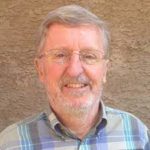 Michael F. Goodchild is Emeritus Professor of Geography at the University of California, Santa Barbara, where he also holds the title of Research Professor. He is also Distinguished Chair Professor at the Hong Kong Polytechnic University and Research Professor at Arizona State University, and holds many other affiliate, adjunct, and honorary positions at universities around the world. Until his retirement in June 2012 he was Jack and Laura Dangermond Professor of Geography, and Director of UCSB’s Center for Spatial Studies. He received his BA degree from Cambridge University in Physics in 1965 and his PhD in geography from McMaster University in 1969, and has received five honorary doctorates.
Michael F. Goodchild is Emeritus Professor of Geography at the University of California, Santa Barbara, where he also holds the title of Research Professor. He is also Distinguished Chair Professor at the Hong Kong Polytechnic University and Research Professor at Arizona State University, and holds many other affiliate, adjunct, and honorary positions at universities around the world. Until his retirement in June 2012 he was Jack and Laura Dangermond Professor of Geography, and Director of UCSB’s Center for Spatial Studies. He received his BA degree from Cambridge University in Physics in 1965 and his PhD in geography from McMaster University in 1969, and has received five honorary doctorates.
He was elected member of the National Academy of Sciences and Foreign Member of the Royal Society of Canada in 2002, member of the American Academy of Arts and Sciences in 2006, and Foreign Member of the Royal Society and Corresponding Fellow of the British Academy in 2010; and in 2007 he received the Prix Vautrin Lud. He was editor of Geographical Analysis between 1987 and 1990 and editor of the Methods, Models, and Geographic Information Sciences section of the Annals of the Association of American Geographers from 2000 to 2006. He serves on the editorial boards of ten other journals and book series, and has published over 15 books and 500 articles. He was Chair of the National Research Council’s Mapping Science Committee from 1997 to 1999, and of the Advisory Committee on Social, Behavioral, and Economic Sciences of the National Science Foundation from 2008 to 2010. His research interests center on geographic information science, spatial analysis, and uncertainty in geographic data.
Deborah Gracio, Associate Laboratory Director, National Security Directorate, Pacific Northwest National Laboratory
 As Associate Laboratory Director of the National Security Directorate (NSD) at Pacific Northwest National Laboratory (PNNL), Deborah (Deb) Gracio ;oversees the portfolio of national security programs and partnerships at PNNL. Under her leadership, PNNL delivers scientific insights, tools, and methods to deploy impactful science and technology to sponsors in the Department of Energy (DOE), Department of Homeland Security, Department of Defense, the Intelligence Community, and the National Nuclear Security Administration.
As Associate Laboratory Director of the National Security Directorate (NSD) at Pacific Northwest National Laboratory (PNNL), Deborah (Deb) Gracio ;oversees the portfolio of national security programs and partnerships at PNNL. Under her leadership, PNNL delivers scientific insights, tools, and methods to deploy impactful science and technology to sponsors in the Department of Energy (DOE), Department of Homeland Security, Department of Defense, the Intelligence Community, and the National Nuclear Security Administration.
Prior to assuming the ALD role, Deb served as NSD’s Chief Operating Officer, driving capability development, mission execution, and project management of the directorate. In her 30 + years at PNNL, Deb has led the strategy, research, development, and management of multiple cross -disciplinary, multi-laboratory programs focused on the basic sciences and national security sectors. Her work included research and development of integrated computational technologies for biodefense, computational biology, computational chemistry, and atmospheric modeling.
 Dr. Taran Gujral is a systems biologist who takes a big-picture, multidisciplinary approach to studies of cell-cell interactions. He investigates both tumor cells and their microenvironment — the noncancerous cells that surround them. Interactions among the cancerous and noncancerous cells in a tumor influence how well it grows, spreads and resists treatment. Dr. Gujral is looking inside and outside tumor cells to discover the molecular programs initiated by these interactions. He is developing methods to preserve the 3D structure of a tumor in the lab so that he can examine how tumor architecture affects cancer cell behavior. Dr. Gujral also works to develop better ways to screen potential cancer drugs. His current projects include noncanonical Wnt signaling pathway, signaling in the Tissue Microenvironment, and Targeting Kinases with Network Pharmacology.
Dr. Taran Gujral is a systems biologist who takes a big-picture, multidisciplinary approach to studies of cell-cell interactions. He investigates both tumor cells and their microenvironment — the noncancerous cells that surround them. Interactions among the cancerous and noncancerous cells in a tumor influence how well it grows, spreads and resists treatment. Dr. Gujral is looking inside and outside tumor cells to discover the molecular programs initiated by these interactions. He is developing methods to preserve the 3D structure of a tumor in the lab so that he can examine how tumor architecture affects cancer cell behavior. Dr. Gujral also works to develop better ways to screen potential cancer drugs. His current projects include noncanonical Wnt signaling pathway, signaling in the Tissue Microenvironment, and Targeting Kinases with Network Pharmacology.
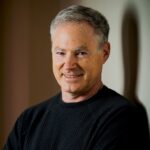 Eric Horvitz serves as Microsoft’s Chief Scientific Officer. He spearheads company-wide initiatives, navigating opportunities and challenges at the confluence of scientific frontiers, technology, and society, including strategic efforts in AI, medicine, and the biosciences.
Eric Horvitz serves as Microsoft’s Chief Scientific Officer. He spearheads company-wide initiatives, navigating opportunities and challenges at the confluence of scientific frontiers, technology, and society, including strategic efforts in AI, medicine, and the biosciences.
Dr. Horvitz is known for his contributions to AI theory and practice, with a focus on principles and applications of AI amidst the complexities of the open world. His research endeavors have been direction-setting, including harnessing probability and utility in machine learning and reasoning, developing models of bounded rationality, constructing systems that perceive and act via interpreting multisensory streams of information, and pioneering principles and mechanisms for supporting human-AI collaboration and complementarity. His efforts and collaborations have led to fielded systems in healthcare, transportation, ecommerce, operating systems, and aerospace.
Beyond his scientific work, he has pursued programs, organizations, and studies on ethics, values, and safety with applications and influences of AI. He founded and chairs Microsoft’s Aether committee on AI, effects, and ethics in engineering and research. He established the One Hundred Year Study on AI at Stanford University and co-founded and serves as board chair of the Partnership on AI (PAI). He served as a Congressionally appointed commissioner on the National Security Commission on AI, where he chaired the line of effort on ethical and trustworthy AI.
Ananth Kalyanaraman, Director, Agaid Insitute, Professor And Boeing Centennial chair in Computer Science, Washington State University
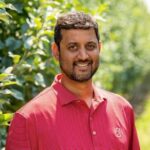 Ananth Kalyanaraman is a Professor, Boeing Centennial Chair in Computer Science, and the Interim Director for the School of Electrical Engineering and Computer Science, Washington State University in Pullman. He is the Director of the NSF-USDA NIFA funded AgAID AI Institute for Transforming Workforce and Decision Support in agriculture. He holds a joint appointment at Pacific Northwest National Laboratory (PNNL), and affiliate faculty positions at the Molecular Plant Sciences Graduate Program and the Paul G. Allen School for Global Health. Ananth received his bachelors from Visvesvaraya National Institute of Technology in Nagpur, India (B.E. in Computer Science and Engineering, 1998); and subsequently M.S. (Computer Science, 2002) and Ph.D. (Computer Engineering, 2006) from Iowa State University.
Ananth Kalyanaraman is a Professor, Boeing Centennial Chair in Computer Science, and the Interim Director for the School of Electrical Engineering and Computer Science, Washington State University in Pullman. He is the Director of the NSF-USDA NIFA funded AgAID AI Institute for Transforming Workforce and Decision Support in agriculture. He holds a joint appointment at Pacific Northwest National Laboratory (PNNL), and affiliate faculty positions at the Molecular Plant Sciences Graduate Program and the Paul G. Allen School for Global Health. Ananth received his bachelors from Visvesvaraya National Institute of Technology in Nagpur, India (B.E. in Computer Science and Engineering, 1998); and subsequently M.S. (Computer Science, 2002) and Ph.D. (Computer Engineering, 2006) from Iowa State University.
Ananth works at the intersection of parallel computing, graph analytics, and bioinformatics/computational biology. His focus is on developing algorithms and software for scalable analysis of large-scale data from various scientific domains and particularly agriculture, plant and life sciences. Research in his lab has been supported by various funding sources including the National Science Foundation (NSF), U.S. Department of Energy (DOE), U.S. Department of Agriculture (USDA), and the Center for Disease Control and Prevention (CDC). Ananth is a recipient of U.S. Department of Energy Early Career Research Award, and his student-led research works have received multiple conference best paper awards and a prestigious graph challenge award. Ananth serves/has served on the editorial boards of several reputed journals (including TPDS, TCBB, JPDC, ParCo), and also regularly serves in various capacities including organizational capacities at various conferences in the areas of parallel processing and bioinformatics. He is currently serving as a Vice-Chair for the IEEE Technical Committee on Parallel Programming (TCPP). Ananth is a senior member of IEEE, and a member of ACM and SIAM.
 Dr. L. Ruby Leung is a Battelle Fellow at Pacific Northwest National Laboratory. Her research broadly cuts across multiple areas in modeling and analysis of climate and the hydrological cycle including land-atmosphere interactions, orographic processes, monsoon climate, climate extremes, land surface processes, and aerosol-cloud interactions. Her research on climate change impacts has been featured in Science, Popular Science, Wall Street Journal, National Public Radio, and many major newspapers.
Dr. L. Ruby Leung is a Battelle Fellow at Pacific Northwest National Laboratory. Her research broadly cuts across multiple areas in modeling and analysis of climate and the hydrological cycle including land-atmosphere interactions, orographic processes, monsoon climate, climate extremes, land surface processes, and aerosol-cloud interactions. Her research on climate change impacts has been featured in Science, Popular Science, Wall Street Journal, National Public Radio, and many major newspapers.
Dr. Leung is the Chief Scientist of Energy Exascale Earth System Model (E3SM) supported by U.S. Department of Energy, a major effort to develop state-of-the-art capabilities for modeling human-Earth system processes on DOE’s next generation high performance computers. She has organized key workshops sponsored by DOE, NSF, NOAA, and NASA, and served on advisory panels and NRC and NASEM committee that define future priorities and opportunities in Digital Twin, AI/ML, climate modeling, hydroclimate, and water cycle research. She is an editor of the American Meteorological Society Journal of Hydrometeorology. Dr. Leung is an elected member of the National Academy of Engineering and Washington State Academy of Sciences. She is a fellow of the American Meteorological Society (AMS), American Association for the Advancement of Science (AAAS), and American Geophysical Union (AGU). She is the recipient of the AMS Hydrologic Sciences Medal in 2022, AGU Global Environmental Change Bert Bolin Award and Lecture in 2019 and the AGU Atmospheric Science Jacob Bjerknes Lecture in 2020. In 2021, Dr. Leung received the U.S. Department of Energy Office of Science Distinguished Scientist Fellow Award. She has published over 500 papers in peer-reviewed journals.
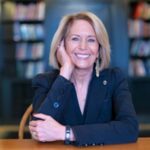 Marcia McNutt is a geophysicist and president of the National Academy of Sciences. From 2013 to 2016, she served as editor-in-chief of the Science journals. Prior to joining Science, she was director of the U.S. Geological Survey (USGS) from 2009 to 2013. During her tenure, the USGS responded to a number of major disasters, including earthquakes in Haiti, Chile, and Japan, and the Deepwater Horizon oil spill. McNutt led a team of government scientists and engineers at BP headquarters in Houston who helped contain the oil and cap the well. She directed the flow rate technical group that estimated the rate of oil discharge during the spill’s active phase. For her contributions, she was awarded the U.S. Coast Guard’s Meritorious Service Medal.
Marcia McNutt is a geophysicist and president of the National Academy of Sciences. From 2013 to 2016, she served as editor-in-chief of the Science journals. Prior to joining Science, she was director of the U.S. Geological Survey (USGS) from 2009 to 2013. During her tenure, the USGS responded to a number of major disasters, including earthquakes in Haiti, Chile, and Japan, and the Deepwater Horizon oil spill. McNutt led a team of government scientists and engineers at BP headquarters in Houston who helped contain the oil and cap the well. She directed the flow rate technical group that estimated the rate of oil discharge during the spill’s active phase. For her contributions, she was awarded the U.S. Coast Guard’s Meritorious Service Medal.
Before joining the USGS, McNutt served as president and chief executive officer of the Monterey Bay Aquarium Research Institute (MBARI), in Moss Landing, California. During her time at MBARI, the institution became a leader in developing biological and chemical sensors for remote ocean deployment, installed the first deep-sea cabled observatory in U.S. waters, and advanced the integration of artificial intelligence into autonomous underwater vehicles for complex undersea missions.
 Zachary New is a Sr Member of the Deep Learning team at Carbon Robotics where he has been instrumental in building and deploying the Deep Learning Models that drive Carbon Robotics’ AI solutions across three continents. He also manages the data curation team to develop one of the highest quality agricultural image datasets on the planet. Prior to Carbon Robotics Zach worked as a Data Scientist at Pacific Northwest National Lab (PNNL) where he developed workshops to educate scientists and government leaders in the applications and practices of machine learning and AI as well as pursued hands on research across object detection, few-shot learning, model explainability and rare object localization to solve problems in the fundamental sciences as well as national security domains. Zachary holds a masters degree in mathematics from Western Washington University. Carbon Robotics. Founded in 2018 by Paul Mikesell Carbon Robotics produces the LaserWeeder, an AI and laser powered precision weeding solution for farms. Zachary has worked to develop the entire breadth of the AI and computer vision system for the LaserWeeder spanning data collection, labeling, automated model training, model evaluation, model recommendation and deployment to LaserWeeders operating around the world.
Zachary New is a Sr Member of the Deep Learning team at Carbon Robotics where he has been instrumental in building and deploying the Deep Learning Models that drive Carbon Robotics’ AI solutions across three continents. He also manages the data curation team to develop one of the highest quality agricultural image datasets on the planet. Prior to Carbon Robotics Zach worked as a Data Scientist at Pacific Northwest National Lab (PNNL) where he developed workshops to educate scientists and government leaders in the applications and practices of machine learning and AI as well as pursued hands on research across object detection, few-shot learning, model explainability and rare object localization to solve problems in the fundamental sciences as well as national security domains. Zachary holds a masters degree in mathematics from Western Washington University. Carbon Robotics. Founded in 2018 by Paul Mikesell Carbon Robotics produces the LaserWeeder, an AI and laser powered precision weeding solution for farms. Zachary has worked to develop the entire breadth of the AI and computer vision system for the LaserWeeder spanning data collection, labeling, automated model training, model evaluation, model recommendation and deployment to LaserWeeders operating around the world.
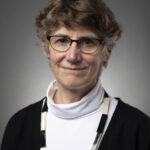 Mari Ostendorf joined the University of Washington Electrical & Computer Engineering Department in 1999. She is an Endowed Professor of System Design Methodologies in the ECE Department, an Adjunct Professor in CSE and Linguistics, as well as Associate Vice Provost for Research. She is a Fellow of the IEEE, ISCA and ACL, a former Australian-American Fulbright Scholar, a member of the Washington State Academy of Sciences, a Corresponding Fellow of the Royal Society of Edinburgh, and a member of the National Academy of Engineering. Prof. Ostendorf has published over 290 papers on a variety of topics in speech and language processing. For her contributions in this area, she was awarded the 2018 IEEE James L. Flanagan Speech and Audio Processing Award. In 2017, she served as a faculty advisor for the student team winning the inaugural AlexaPrize competition to build a socialbot, and conversational AI is a focus of her current work. Her research explores dynamic models for understanding and generating speech and text, particularly in multi-party contexts, and it contributes to a variety of applications, from education to clinical and scientific information extraction.
Mari Ostendorf joined the University of Washington Electrical & Computer Engineering Department in 1999. She is an Endowed Professor of System Design Methodologies in the ECE Department, an Adjunct Professor in CSE and Linguistics, as well as Associate Vice Provost for Research. She is a Fellow of the IEEE, ISCA and ACL, a former Australian-American Fulbright Scholar, a member of the Washington State Academy of Sciences, a Corresponding Fellow of the Royal Society of Edinburgh, and a member of the National Academy of Engineering. Prof. Ostendorf has published over 290 papers on a variety of topics in speech and language processing. For her contributions in this area, she was awarded the 2018 IEEE James L. Flanagan Speech and Audio Processing Award. In 2017, she served as a faculty advisor for the student team winning the inaugural AlexaPrize competition to build a socialbot, and conversational AI is a focus of her current work. Her research explores dynamic models for understanding and generating speech and text, particularly in multi-party contexts, and it contributes to a variety of applications, from education to clinical and scientific information extraction.
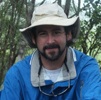
Dr. Richards completed his PhD in Zoology at the University of Hawaii in 2011, where he studied the ecology and patterns in habitat preference of large-bodied reef fish. In 1998 Ben joined the NOAA Florida Keys National Marine Sanctuary (FKNMS) to assist with the development of the FKNMS Research and Monitoring Plan and Final Environmental Impact Statement. In 2004 Ben moved to the Coral Reef Ecosystem Division of the NOAA Pacific Islands Fisheries Science Center (PIFSC) in Honolulu, modeling the distribution of Pacific reef fish abundance and biomass associated with various natural and anthropogenic environmental factors. Input data for these studies predominantly resulted from diver-based visual surveys. Inter-observer variation and the paucity of data from below diver depths pushed his research toward the use of camera-based technologies for optical sampling. Since moving to the PIFSC Stock Assessment Division in 2010, his research has focused on the use of advanced fishery-independent sampling technologies, including optical camera systems, to assess species-specific, size-structured abundance for Hawaii bottomfish assemblages. The volume of data produced by these camera systems has quickly overwhelmed the capabilities of human analysts. His research focus has thus expanded to include the development of automated classification algorithms to produce species-specific, size-structured abundance estimates from underwater optical surveillance video of reef and bottomfish.
Ben currently serves as a member of the National Marine Fisheries Service Advanced Sampling Technology Working Group and is chair of the NMFS Strategic Initiative on Automated Image Analysis. His research currently focuses on the distribution of marine resources along gradients of natural and anthropogenic factors and how advanced sampling technologies and automated analysis tools can provide enhanced data for stock assessment and ecosystem-based management.
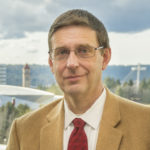 John Roll has served as a faculty member in the Department of Psychiatry at Wayne State University, as Director of Behavioral Pharmacology in UCLA’s Integrated Substance Abuse Programs, Director of the Washington Institute for Mental Health Research and Training, Associate Dean for Research in the Washington State University (WSU) College of Nursing, Associate Vice Provost for Health Sciences at WSU, and as the Senior Vice Chancellor for Academic Affairs and Research at the WSU Health Sciences Campus. He is the Founding Director of the WSU Program of Excellence in Addictions Research (PEAR) and is the Co-Director of the WSU Translational Addiction Research Center (TARC). Dr. Roll holds faculty appointments in the WSU Departments of Medicine, Psychology, Neuroscience, Nursing, Prevention Science, Nutrition Exercise and Physiology, and Health Policy Administration. He was appointed by WA State Governor Gregoire as an Executive Commissioner on the Eastern State Hospital Advisory Board and as a Vice Chair of the Governor’s Council on Substance Abuse. Roll is a Fellow of the following organizations: American Psychological Association, Association for Behavior Analysis International, Association for Psychological Science, and the American Association for the Advancement of Science. He has published more than 160 scholarly articles.
John Roll has served as a faculty member in the Department of Psychiatry at Wayne State University, as Director of Behavioral Pharmacology in UCLA’s Integrated Substance Abuse Programs, Director of the Washington Institute for Mental Health Research and Training, Associate Dean for Research in the Washington State University (WSU) College of Nursing, Associate Vice Provost for Health Sciences at WSU, and as the Senior Vice Chancellor for Academic Affairs and Research at the WSU Health Sciences Campus. He is the Founding Director of the WSU Program of Excellence in Addictions Research (PEAR) and is the Co-Director of the WSU Translational Addiction Research Center (TARC). Dr. Roll holds faculty appointments in the WSU Departments of Medicine, Psychology, Neuroscience, Nursing, Prevention Science, Nutrition Exercise and Physiology, and Health Policy Administration. He was appointed by WA State Governor Gregoire as an Executive Commissioner on the Eastern State Hospital Advisory Board and as a Vice Chair of the Governor’s Council on Substance Abuse. Roll is a Fellow of the following organizations: American Psychological Association, Association for Behavior Analysis International, Association for Psychological Science, and the American Association for the Advancement of Science. He has published more than 160 scholarly articles.
 Lynda Stuart is the Executive Director of the Institute for Protein Design, overseeing translational research, institute operations, and corporate and foundation collaborations. Lynda is a physician, scientist, and advocate for healthcare as a human right with over 20 years of experience in immunology, global health, and product development. Her experience transforming laboratory breakthroughs into real-world impact guides the IPD’s mission to create proteins that solve modern challenges in medicine, technology, and sustainability. She is an acting professor at the University of Washington School of Medicine.
Lynda Stuart is the Executive Director of the Institute for Protein Design, overseeing translational research, institute operations, and corporate and foundation collaborations. Lynda is a physician, scientist, and advocate for healthcare as a human right with over 20 years of experience in immunology, global health, and product development. Her experience transforming laboratory breakthroughs into real-world impact guides the IPD’s mission to create proteins that solve modern challenges in medicine, technology, and sustainability. She is an acting professor at the University of Washington School of Medicine.
As Deputy Director for Vaccines & Human Immunology at the Gates Foundation from 2016 to 2022, Lynda oversaw the development and distribution of vaccines, biologics, and antibody therapies to address urgent global health challenges. Notably, she led the Foundation’s COVID-19 discovery and translational vaccine response efforts, managing a large portfolio of COVID-19 and pan-coronavirus vaccine candidates. During this period, she collaborated closely with the Institute for Protein Design and guided the development and approval of the computationally designed COVID-19 vaccine SKYCovione. Since leaving the Gates Foundation, Dr. Stuart was the Vice President of Infectious Disease at the mRNA company BioNTech.
 Anna Zamora-Kapoor is an Assistant Professor at Washington State University, with a joint appointment at the Department of Sociology and the Department of Medical Education and Clinical Sciences. Her research examines the social determinants of health and health disparities, and designs interventions aimed at improving health outcomes among racial minorities and rural populations. Her research has been funded by the National Institutes of Health, the Robert Wood Johnson Foundation, and the Alzheimer’s Association, among others. In 2022, she received the Chancellor’s Award for Excellence in Diversity and Inclusion at Washington State University.
Anna Zamora-Kapoor is an Assistant Professor at Washington State University, with a joint appointment at the Department of Sociology and the Department of Medical Education and Clinical Sciences. Her research examines the social determinants of health and health disparities, and designs interventions aimed at improving health outcomes among racial minorities and rural populations. Her research has been funded by the National Institutes of Health, the Robert Wood Johnson Foundation, and the Alzheimer’s Association, among others. In 2022, she received the Chancellor’s Award for Excellence in Diversity and Inclusion at Washington State University.

Bo Zhao is currently an Associate Professor in UW Geography, where he directs the Humanistic GIS Lab. His research interests focus on GIScience, spatial misinformation, and the societal implications of emerging GIS technologies, with a particular investment in understanding and addressing the experiences of vulnerable populations, such as refugees displaced by climate change effects and LGBTQ+ communities in repressive national contexts.
A cornerstone of his research is his work on ‘Humanistic GIS.’ This area delves into how GIS and human experiences interact, influencing societal structures, behaviors, and experiences. He is deeply interested in how GIS can be utilized to support these vulnerable populations and in assessing their potential impact on geospatial technologies and data. Another significant aspect of his research is ‘deep fake geography,’ where he provides an in-depth exploration of fake satellite imagery. This work encourages the public and various stakeholders to recognize and address its impact on national security and geoprivacy.
